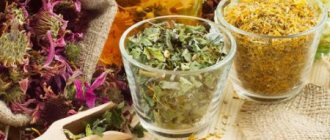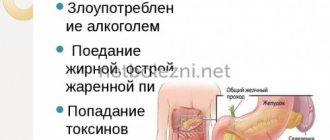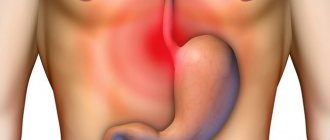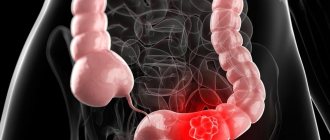For most people, hunger pain in the stomach does not cause anxiety. Meanwhile, such a symptom, which occurs constantly, often indicates diseases of the gastrointestinal tract. In today's article we will look at the causes and symptoms of the disease, in which it is necessary to run to the doctor. You will also learn about the drugs that are used in such cases, and how diet can improve the patient’s condition.
What examinations are necessary for stomach pain on an empty stomach? Can there be night pain? What is their reason? Is it possible to resort to traditional medicine recipes, which ones are the most effective? We will talk about all this in our material. You will also learn about basic preventive measures that will help avoid abdominal discomfort.
What is gastralgia
This term in medicine is usually called cramping pain in the stomach. As a rule, it is felt in the area of the left hypochondrium, but at first it can only cause slight discomfort to the person.
Since gastralgia has a different etymology, which is not always related to the functioning of the gastrointestinal tract, it is necessary to carry out a diagnosis. With its help, the attending physician will be able to determine what is causing the pain.
Characteristics of hunger pains:
- cramping - spasms;
- aching;
- "sucking";
- strong;
- radiating to the right or left hypochondrium;
- encircling.
It is considered normal if painful (or rather unpleasant) sensations arise in the stomach after 6 hours of fasting, but not earlier.
Quite often, patients note that hunger pain subsides after vomiting. This is explained by the fact that after such an unpleasant phenomenon, the acidity of gastric juice decreases, which irritates sensitive nerve endings.
Why does my stomach hurt: main reasons
Before talking about how the treatment is carried out, it is necessary to clarify the reasons for such discomfort. These include:
- Violation of peristalsis of the stomach walls, which is accompanied by pain.
- Today, doctors often explain hunger pains as a psychosomatic illness. Against the background of stress and nervous breakdowns, pain due to gastritis and ulcers may increase.
- This problem occurs with increased stomach acidity associated with gastritis or gastroduodenitis.
- One of the most common causes is a stomach or duodenal ulcer. Muscle contractions and spasms that are centered around an ulcer are a fairly common problem.
- Similar painful sensations in the stomach occur with chronic pancreatitis (inflammation of the pancreas).
- In some cases, hunger pain in the stomach indicates a person is infected with worms. Helminthic infestation is easily confused with diseases of the kidneys, gall bladder and gastrointestinal tract ailments. However, in addition to pain, there are a number of other nonspecific signs that indicate that helminths have colonized the intestinal tract. A person suffers from regular diarrhea or constipation, nausea and bloating. As a rule, the pain is localized in the right hypochondrium and the navel area.
Many people naively believe that worms do not cause significant harm to their owner. However, too bright pain indicates colonies of helminths infesting the internal organs. This phenomenon causes constipation and intestinal problems. With prolonged massive infection, serious intoxication of the body, increased body temperature, and weakness are possible. Joint pain also indicates a serious problem.
Problems not related to the stomach
Other common reasons:
- Pregnancy. The fact is that many women suffer from pain localized in the solar plexus area. Their culprit is toxicosis.
- If you are bothered by night pain in the navel area, then you need to consult a specialist and rule out salmonellosis infection. This problem occurs when consuming raw eggs, poorly processed dairy and meat products.
- Hunger pain is often characteristic of people suffering from myocardial infarction and complicated arrhythmia. In this case, patients complain to specialists of heart pain. During a heart attack, it can radiate to the arm or neck. Due to similar symptoms, experts often mistake an attack for a gastrointestinal tract disease.
The culprit of pain that occurs on an empty stomach may also be appendicitis. As a rule, the patient complains of discomfort in the early morning or at night. Initially, the patient is bothered by pain under the ribs, and then it spreads further. With appendicitis, the pain intensifies, as well as when lying on the left side.
What diseases can cause the problem:
- Zollinger-Ellison syndrome;
- pancreatitis;
- Crohn's disease;
- cholecystitis and cholangitis;
- Barrett's syndrome;
- damage to the digestive tract by clostridia difficile.
Hungry stomach pain
You should not flatter yourself with the hope that hungry stomach pain is a random phenomenon, because hungry stomach pain always appears only with diseases of the gastrointestinal tract and can be considered one of the indisputable symptoms of such diseases.
Researchers say the gallbladder is the result of millions of years of evolution. The original nervous system, possessed by the earliest forms of life, was precisely the rudimentary stomach, which regulated digestion. As more complex animal species needed more powerful brains to find food and breed, a second central brain connected to the central nervous system eventually evolved. At the same time, humans and other higher animals retained their nervous systems in the intestines.
Other changes may have occurred as people learned to prepare food by cooking. By grinding the grains or cooking the leaves, they become more suitable for baking and more nutrients are absorbed by the body.
Attention! It is necessary to distinguish between the usual feeling of hunger and hungry pain in the stomach.
Hunger pain almost always occurs simultaneously with the feeling of hunger or shortly after the feeling of hunger appears. If we are really talking about hunger pain, then one of its signs is the disappearance of pain after eating, even if the portion of food was minimal.
The brain in the digestive system has a complex language,” Vaquet concludes. We need to properly understand its functioning before we can create truly satisfying foods. The site warns that site administrators will delete comments containing obscene language, racial, ethnic, religious, sexual or sexual slurs, or comments that are in Latin.
It has happened to you at least once that you are hungry when you are hungry. Today we explain the causes of this pain and how to prevent it. Sometimes due to hectic schedule it jumps over some tables and the effect is that you feel tense, hungry and with a headache most of the time. Rather, your head is telling you it's time to eat. One of your body's hunger responses, headaches are a sign of unhealthy eating habits. You can reduce the likelihood of hunger-related hunger by planning balanced meals and healthy, filling meals.
In no case should you use snacks as a “cure” for such pain, since snacks, although they soothe the feeling of pain, can blur the clinical picture and “hide” important symptoms, which very likely indicate some kind of disease that requires serious and immediate medical intervention.
Hungry people include muscle tension and low blood sugar. Hunger can cause muscles to tense up, causing tension headaches. If you skip meals, sleep later than usual, or eat meals or snacks late, all of these factors will cause your blood glucose levels to drop. When your blood sugar suddenly drops, your body produces hormones to counteract low glucose levels, which can cause headaches. Frequently prescribing headache-related headaches can lead to recurring headaches that have a rebound effect.
Hunger pain in the stomach can be one of the symptoms of an advanced inflammatory process of this organ, when the gastric mucosa is seriously damaged, inflamed and damaged (that is, a symptom of chronic gastritis and/or stomach ulcers). Such pain is concentrated in the epigastrium (popularly called “in the pit of the stomach”).
How to identify headaches due to hunger
Tension headaches have several possible causes, including hunger. Symptoms of headache pain include pain or pressure on both sides of the head, a tingling sensation or tightness in the forehead, pain from the neck, pain in the neck and shoulders and tight shoulders, a tense face or a tense neck.
Like hungry headaches
A headache caused by low blood sugar is often accompanied by other associated symptoms, such as sweating, weakness, fatigue, confusion, dizziness and shaking. You can reduce the risk of hunger caused by headaches if you eat your main meals and favorite snacks at regular times. Try to keep your body hydrated and limit added sugar from your drinks and other foods. If you experience frequent hunger headaches, consider this tip: Eat more small meals a day instead of three main meals, or plan healthy snacks between meals.
Attention! The “stomach” is where the ribs meet above the stomach. It is this place in medicine that is called the initial (or cardiac) part of the stomach.
Unpleasant or painful sensations in the pit of the stomach (the junction of the ribs above the stomach is spoon-shaped) occur in many cases, and pressure on the epigastric region (the upper abdomen under the ribs) causes very noticeable discomfort.
Such sensations can be noted with the appearance of a normal feeling of hunger, with certain diseases of the stomach (for example, gastritis), with helminthic infestations, and sometimes with manifestations of early toxicosis of pregnancy; as well as in case of myocardial infarction (one of the possible symptoms), with.
In addition, unpleasant sensations in this area can occur during a stressful situation (anxiety, fear, a feeling of impending danger or misfortune) - and then we are talking about a psychological/neurological factor.
Hungry pain in the pit of the stomach may be a symptom of duodenitis (inflammatory disease of the mucous membrane of the duodenum or the entire duodenum) or, and sometimes, intestinal ulcer. With these diseases, other symptoms are possible, among which heartburn, nausea, and vomiting are especially indicative, which can occur with very severe pain and alleviate the condition (the vomit is sour).
With hunger pain in the stomach, a protective reaction of the body may occur in the form of a complete lack of appetite (this is a psychological protective reaction of the body in response to the inability of the gastrointestinal tract to digest incoming food).
If hunger pain is not constantly intense, but intensifies at night, it can be triggered by a hormonal imbalance. This is especially often noted in cases where the body categorically refuses to eat food during the day, but at night there appears not just a feeling of hunger, but a nagging hunger pain.
How is diagnostics carried out?
To prescribe a course of treatment, the patient must undergo a series of examinations. For hunger pain in the stomach, the following are recommended:
- ultrasound examination of the gastrointestinal tract;
- fibrogastroendoscopy;
- fluoroscopy;
- sometimes MRI of the gastrointestinal tract;
- capsule endoscopy (in some cases may not be effective enough).
As you can see, most often hunger pains occur against the background of the development of diseases such as ulcers and gastritis. In most cases they are caused by the pathogenic bacterium Helicobacter pylori. Therefore, it is imperative to undergo a test for the presence of H. pylori during diagnosis to determine the extent of the problem. Unlike other diseases, Helicobacter pylori infection can only be treated with antibiotics. The course of treatment is determined by the doctor, but it should not exceed 14 days. After drug therapy, you will need to take the test again.
Treatment
First aid
- For temporary relief of symptoms, you can take proton pump inhibitors (Omez, Lansoprol, etc.) 1 hour before meals in the morning.
- Antacid coating drugs can also help: Almagel, Phosphalugel, Maalox, etc. (they can be taken before or some time after meals - according to the instructions).
- In some cases, taking an antispasmodic (No-spa) helps.
- If you don’t have medicine on hand or you are afraid to do anything before your doctor’s appointment, you can brew crushed flax seed (1 teaspoon per ½ cup boiling water), let it brew and take 30 minutes before meals.
- Other enveloping foods can help relieve hunger cramps in the stomach. For example, oatmeal with water or unsweetened jelly.
- If you have nothing at hand, drink a glass of warm water on an empty stomach.
These methods are taken once or for a short time if it is not possible to get an appointment with a doctor. You should consult a doctor as soon as possible to make a diagnosis and prescribe the correct treatment. Even if the symptoms have decreased or disappeared, do not delay going to the hospital - the problem has not disappeared!
Seeing a doctor
A stomach ache from hunger is one thing. However, if you have no desire to have a snack, and the pain continues to bother you, go to the doctor.
Based on examinations, the specialist determines the course of treatment. Drug therapy includes the following:
- Antibiotics (the bacterium Helicobacter pylori is vulnerable to antibacterial drugs, but when prescribing them, one should be guided by the results of drug sensitivity testing).
- If the doctor has prescribed antibiotics, prebiotics must be taken. They will help populate the gastrointestinal microflora with beneficial bacteria.
- Drugs intended to eliminate muscle pain and spasms localized in the stomach (antispasmodics).
- To normalize the acidity of the stomach (especially in case of serious ailments of the gastrointestinal tract), it is recommended to take antisecretory drugs.
- Also needed are medications that are directly aimed at treating the underlying disease, a symptom of which may be hunger pain.
- Strong painkillers will help eliminate pain (only as prescribed by a doctor, as they can complicate the disease).
- During the treatment period it is necessary to take hepatoprotectors. They protect the liver from the negative effects of active drug components.
- Also, on the recommendation of a doctor, you should take vitamins that stimulate the functioning of the body's immune system.
In some cases, treatment is carried out in hospitalization.
What to do if you have a hungry stomach ache?
Once again, it is necessary to pay attention that in any case, hungry stomach pain indicates a serious illness. Most often we are talking about a disease of the gastrointestinal tract, but hormonal disorders and psychological problems are also quite possible. Since it is impossible to independently determine the cause of hunger pain and make a diagnosis in this case, you should follow some rules.
- First, you need to contact a gastroenterologist, who will be able to prescribe the clinical studies and laboratory tests necessary in each individual case or refer you to another specialist.
- Secondly, even without an accurate idea of the diagnosis, it is very important to carefully follow the diet. In case of hunger pain in the stomach, it is necessary to completely exclude from the menu any food with a high fat content (especially of animal origin), refuse any fried foods, as well as spicy foods and seasonings. Alcohol is strictly contraindicated.
- Thirdly, the food should be warm, especially for first courses. Warm porridges, including buckwheat and oatmeal, are very healthy.
- Fourthly, the best way to prepare fish and/or meat dishes with the required diet in this case should be considered steaming.
- Fifthly, if a hungry stomach ache appears, then any diet for weight loss is strictly contraindicated.
Attention! If you experience hungry stomach pain, you should immediately consult a doctor. It is extremely unwise to delay visiting a doctor - in some cases it can cause very dangerous consequences.
You can relieve hunger pain even with a small portion of food, but the food should be gentle and not overload the gastrointestinal tract.
When hunger pain occurs, meals should be divided: up to five to six times a day, but in small portions.
As a snack, you should never use any industrially produced snacks that are intended for eating on the go and have a significant shelf life. This group of products undesirable for consumption includes chocolate bars, potato and other chips, corn sticks, popcorn, peanuts with salt or sugar, and a variety of commercially prepared crackers.
Snacks have a very high calorie content (they contain a lot of fat), so they can really quickly satisfy your hunger, but they contain very few substances useful for the body (vitamins, micro- and macroelements), so nutritionists and gastroenterologists consider such snacks to be unhealthy food.
A healthy alternative to traditional snacks can be dried, but not roasted, nuts (almonds, walnuts, cashews, hazelnuts); pumpkin or sunflower seeds, pieces of hard cheese; if there are no contraindications, then fresh fruits or vegetables (for example, apples, plums, peaches, carrots, cucumbers); dried fruits (for example, dried apricots, prunes, dates); homemade bread crumbs prepared in the oven or microwave without adding fat, salt or sugar.
Attention! If you have problems with the gastrointestinal tract, it is better to discuss suitable snacks (foods that do not require heat treatment for small snacks) with your doctor.
For diseases of the gastrointestinal tract, including hunger pain, you can use infusions or decoctions of medicinal herbs.
Decoction of calamus rhizome
A decoction of calamus rhizome has anti-inflammatory, antibacterial, choleretic, disinfectant and tonic effects. This decoction has the ability to significantly improve the functioning of the gastrointestinal tract, enhances the secretion of gastric juice, and stimulates the functioning of the pancreas and liver.
You will need:
- Dry vegetable raw materials of calamus rhizomes - 10 g (1 tablespoon);
Preparation:
Grind the dry plant material of calamus rhizomes and place in a glass or enamel bowl, pour in cooled boiled water. Bring to a boil and simmer over low heat, covered, in a water bath for 15 minutes. Remove from heat and leave at room temperature for 45 minutes without removing the lid. Strain the broth and squeeze out the plant material. Add boiled water to bring the volume of infusion to 200 ml.
Application:
- For adults
: half an hour before meals, 50 g (1/4 cup) up to four times a day (a portion of the decoction prepared in the morning is intended for one day of administration). Before use, the decoction must be shaken (shaken). - For children
: the required dosage is determined by the attending pediatrician depending on the age of the child (the minimum single dosage is one tablespoon; the maximum single dosage is 50 g (1/4 cup). The frequency of administration is the same as for adults.
Chamomile decoction
Chamomile is known as an excellent (one of the best) antispasmodic and anti-inflammatory agents, therefore a decoction of chamomile is successfully used to treat inflammatory processes (both acute and chronic) of the mucous membrane of the gastrointestinal tract.
You will need:
- Dry plant material of chamomile - 10 g (3 tablespoons);
- Boiled water, cooled to room temperature - 200 ml (1 glass).
Preparation:
Place the dry plant material of chamomile in a glass or enamel container and add boiled water. Bring to a boil and simmer over low heat, covered, in a water bath for 15 minutes. Remove from heat and leave at room temperature, without removing the lid, until completely cooled. Strain the broth and squeeze out the plant material. Add boiled water to bring the volume of infusion to 200 ml.
Application:
- For adults
: half a glass of warm decoction should be taken up to four times a day after meals. Before use, the decoction must be shaken (shaken). - For children
: the required dosage is determined by the attending pediatrician depending on age (the minimum single dosage is one tablespoon; the maximum single dosage is up to a quarter of a glass. The frequency of administration is the same as for adults.
Flax seed decoction
A decoction of flax seeds covers the mucous membrane of the gastrointestinal tract with a thin layer and protects it from irritation, and also has an anti-inflammatory and regenerating effect. Flax seeds are used for almost any inflammatory processes of the gastrointestinal tract, including esophagitis, gastritis with any acidity, gastric and duodenal ulcers, as well as enteritis, colitis and other diseases.
You will need:
- Dry vegetable raw materials - 3 g (1/2 teaspoon);
- Boiling water - 100 ml (1/2 cup).
Preparation:
Place dry flax seed plant material in a glass or enamel bowl, pour boiling water over it and shake thoroughly for 15 minutes. Strain the broth.
Application:
1/4 cup of warm broth should be taken three times a day half an hour before meals. A decoction of flax seeds can only be taken freshly prepared!
Attention! A lasting therapeutic effect of the use of medicinal herbs is ensured only with careful and constant use for a sufficiently long time, which is determined by the attending physician in each individual case (individually), but not less than two months.
The pharmacy chain offers not only dry herbal raw materials of medicinal herbs, but also filter bags, which are very convenient for use, especially outside the home (for example, at work). Instructions for using these filter bags are located on the packaging or package insert.
Attention! Before using any medicinal herbs, you should consult your doctor.
What does ignoring the problem lead to?
If you contact a specialist at the first alarm bells (discomfort or mild hunger pain in the stomach), you can prevent serious health problems. In most cases, doctors diagnose gastritis or an ulcer.
The latter disease poses a great danger, since if left untreated, the stomach wall may perforate and the contents may leak into the abdominal cavity. Inflammation of the peritoneal layers, which in medical circles is called peritonitis, leads to a systemic inflammatory process.
In advanced cases, ulcerative formation can lead to a serious condition for the patient and even death.
Traditional methods
Fighting acidity
Gastritis, in which hydrochloric acid is intensively produced, can be treated with complex therapy. In addition to medications, let’s take one of these traditional medicines:
- Grind the eggshells using a coffee grinder. Take 2 tsp. daily for 7 days. Then take a break of one week and repeat the course of treatment.
- Drinking mint tea will help reduce the production of hydrochloric acid. It is advisable not to use packaged drinks. It is better to replace it with dry mint, collected from the garden. Drink the healing infusion twice a day every day.
- Cinnamon will help relieve hunger pains and reduce the production of hydrochloric acid. It is recommended to eat a pinch of spice daily on an empty stomach.
Treatment of hunger pains with herbs
If you adhere to herbal medicine, you must remember that you need to take healing infusions for 1-2 months.
- Pour 10 g of dry chamomile with a glass of water, simmer over low heat for 10-15 minutes. Cool and strain. Take the medicine daily 4 times a day.
- 1 tsp. flaxseed pour 200 ml of boiling water. After the product has infused for 20 minutes, shake it and strain. Take the drug 50 ml three times a day. It is best to do this before eating.
Main sources of the problem
It is difficult to give an unambiguous assessment of the real cause of hunger pain. And there may be several of them. For example, often such a symptom is evidence of the progression of gastritis with high acidity. In this case, gastralgia will be present in the solar plexus area, appearing 1-3 hours after eating.
At the initial stages of the development of the disease, the pain is vague. Therefore, patients usually do not notice or ignore it. However, this does not mean that you should postpone visiting your doctor. On the contrary, surgical treatment will help avoid many complications. Moreover, the treatment will not be too complicated - diet, taking antibiotics against the Helicobacter bacteria, taking medications to reduce acidity and coat the gastric mucosa.
Along with this reason, there are also other factors that provoke hunger pain - the development of ulcers, duodenitis, parasitic infections.
Diet during treatment
In addition to the treatment prescribed by specialists, it is necessary to follow a diet. A balanced diet will help restore the affected mucous membrane and reduce the load on the digestive tract.
It is necessary to remove fast food and semi-finished products (so-called junk food), all kinds of dubious bars and dough products from the patient’s diet. Coffee is not the best option for hunger pain in the stomach, the causes of which we discussed earlier. Therefore, it is recommended to replace this drink with weak herbal infusions.
People with this problem need to include in their diet:
- durum wheat pasta and nutritious side dishes based on cereals;
- vegetable and chicken broths (pork is not recommended for making soup base);
- nuts (no more than 30 g per day);
- dried fruits and non-acidic fruits (but not on an empty stomach, since the acids contained in fruits can provoke another attack of pain);
- jelly and natural non-acidic freshly squeezed juices (if well tolerated);
- water without gas;
- dairy products;
- People with diseases of the gastrointestinal tract are greatly benefited by eating greens (dill and parsley stimulate peristalsis and relieve intestinal colic).
Hunger pain in the stomach most often indicates the presence of a gastric ulcer, so it is recommended to reduce the amount of salt consumed to a minimum - no more than 1-2 tsp. per day.
Important Dietary Advice
If hungry morning stomach pains, the causes of which we discussed earlier, continue to be annoying, then experts strongly recommend adhering to the following rules:
- First courses should not be eaten either cold or too hot. It is advisable that the soup or borscht be warm.
- Avoid eating excessively fatty and salty foods. Doctors also recommend avoiding eating too spicy and fried foods.
- If you have this problem, you should not fast or go on any diet. In the process of forming the right eating habits, you will already get rid of extra pounds.
- It is advisable to eat according to the fractional method. That is, in small portions, but often enough. This will help you avoid unhealthy snacks. The optimal number of meals per day is 5-6. At the same time, make sure that you eat your last meal 3-4 hours before bedtime.
For more serious problems, doctors advise patients to eat pureed food.
Now you know what hunger pain in the stomach may indicate, and what consequences they can lead to if you do not start drug therapy in a timely manner. To quickly cure the disease, it is recommended to adhere to proper nutrition and get rid of bad habits that adversely affect the condition and functioning of the gastrointestinal tract.
Physiological features of hunger manifestation
A normally functioning body sends impulses about the need to eat approximately 3–4 hours after eating; minor deviations may vary depending on the individual characteristics of the person. The stomach, as the main organ of the digestive tract, is responsible for sending impulses to the cerebral cortex.
Most often, the urge to eat during normal functioning of the digestive tract is not characterized by painful symptoms, but is expressed by suction in the stomach, which goes away immediately after eating. As soon as the required amount of food enters the stomach, filling it to standard sizes, the organ sends impulses to the cerebral cortex about satiety, and the feeling of hunger disappears.
However, the occurrence of a repeated desire to eat with painful symptoms immediately after eating or several hours later signals certain problems in the body, which may have different causes and, accordingly, consequences. This manifestation of the body is called “hunger pain” in medicine. Let's consider the reasons for their manifestation and accompanying symptoms.










